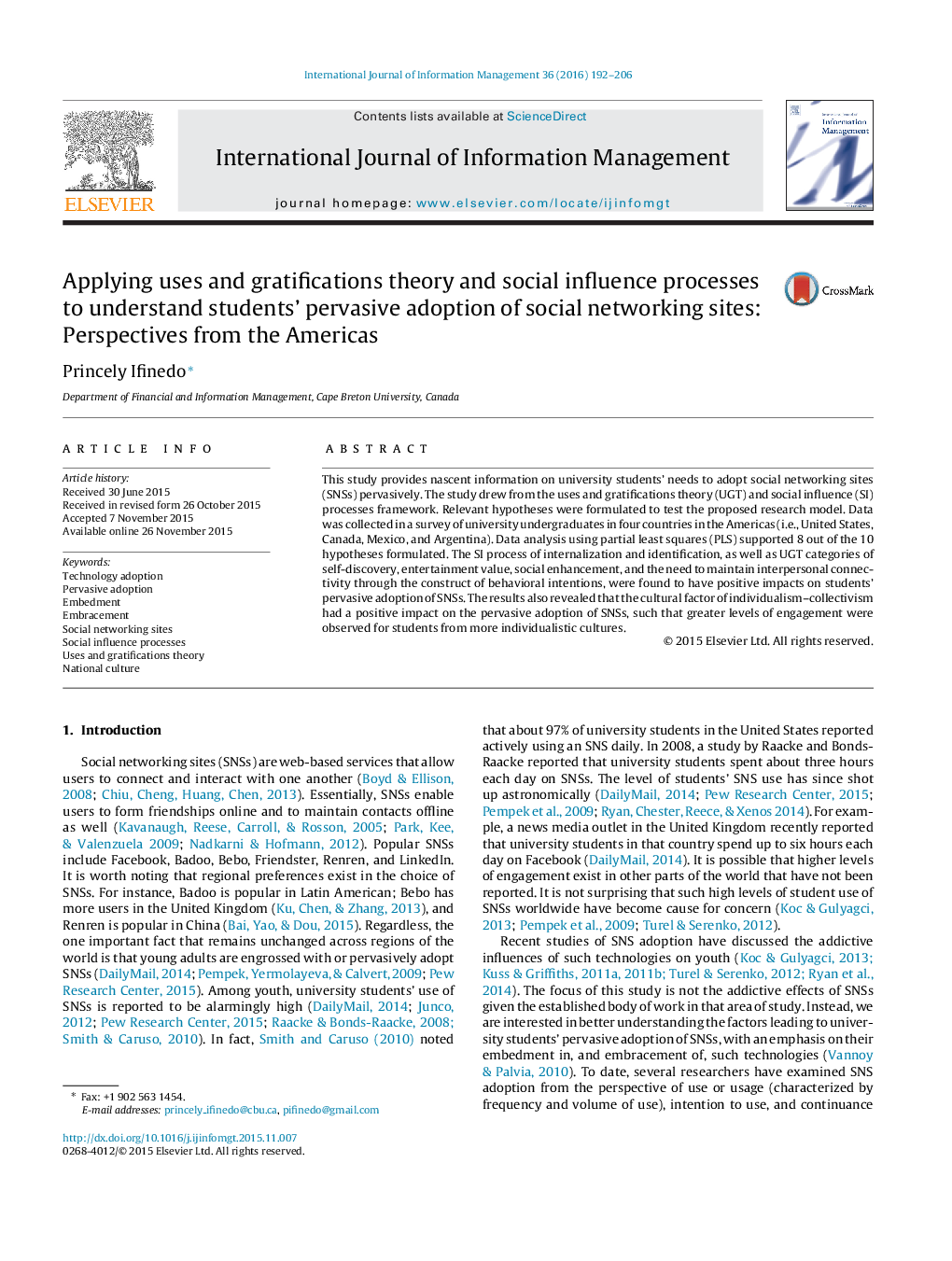| Article ID | Journal | Published Year | Pages | File Type |
|---|---|---|---|---|
| 1025594 | International Journal of Information Management | 2016 | 15 Pages |
•The social influence processes of internalization and identification have positive impacts on students' pervasive adoption of social networking sites (SNSs).•The needs for self-discovery and entertainment value have positive impacts on students' pervasive adoption of SNSs.•The needs for social enhancement and maintaining interpersonal connectivity have positive impacts on students' pervasive adoption of SNSs.•The factor of individualism–collectivism has a positive impact on the pervasive adoption of SNSs, such that greater levels of engagement were observed for students from more individualistic cultures.
This study provides nascent information on university students' needs to adopt social networking sites (SNSs) pervasively. The study drew from the uses and gratifications theory (UGT) and social influence (SI) processes framework. Relevant hypotheses were formulated to test the proposed research model. Data was collected in a survey of university undergraduates in four countries in the Americas (i.e., United States, Canada, Mexico, and Argentina). Data analysis using partial least squares (PLS) supported 8 out of the 10 hypotheses formulated. The SI process of internalization and identification, as well as UGT categories of self-discovery, entertainment value, social enhancement, and the need to maintain interpersonal connectivity through the construct of behavioral intentions, were found to have positive impacts on students' pervasive adoption of SNSs. The results also revealed that the cultural factor of individualism–collectivism had a positive impact on the pervasive adoption of SNSs, such that greater levels of engagement were observed for students from more individualistic cultures.
